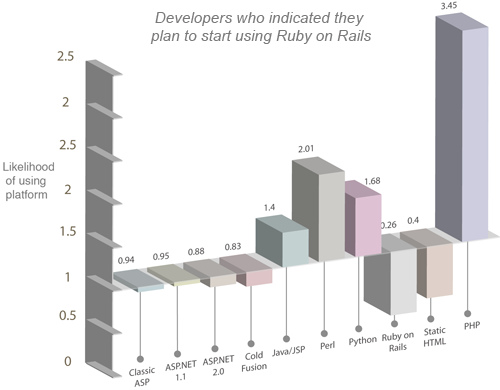latest blog entry
The Decline and Virtualisation of PHP
October 31st, 2006, By Duncan Gough
I couldn’t make a ‘decline and fall’ joke in there, so, not the best start.
Anyway – there are two posts ongoing on suttree.com that I continually update with certain news stories, as both topics have a while to run and are pretty intersting.
The first – ZZZZ Best – is a post about the many hi-jinks and exploits (the good kind) coming out of EVE Online. Of all MMOs, EVE is by far the most intriguing. Watching them reverse from outer space into a galaxy of virtual worlds, is incredibly fun. There are a number of reasons why EVE stands out from the crowd and it baffles me that Microsoft aren’t banging the drum for Windows Servers being used in a such a high profile, gaming environment. Especially given the high profile outages of other MMOs. EVE, in general, has a fantastic security record, and that’s an association that Microsoft should be championing, in my opinion.
The other post – The mass amateurisation of everything, in code – picks at the increasing number of bad practices that Web 2.0 sites have indulged in. Most recently, a cross-domain exploit has been discovered in a large number of sites and again this is something that can be attributed to the rush for new features over the ‘right way’ of doing things.
There have been two developments on that post that really caught my eye, though. The first, naturally, has been the continuing success of Ruby on Rails. Not only that, but its improvements. Where once PHP was the quick option, RoR is now the quick option. You could always ‘hack together’ PHP code and throw a site up in a couple of days, but now you can install Ruby on Rails and be at the same point in the same time, but better off. The nature of the Rails framework is that you spend that same amount of time describing the problem domain, not hacking together your favourite database library, templating system and security measures again and again.
Over on Sitepoint, a recent survey suggestions that PHP are the most likely to switch to Ruby on Rails in the future. Now, you can prove anything with statistics and pretty graphs, but I’d say this is a fairly true representation of the current PHP developer community. Of all the development communities to take up their arms and fight their corner, PHP had MVC frameworks coming out of its ears within weeks of Ruby on Rails becoming big news. Even now, the Zend framework is a sign of the PHP leadership cloning just to keep in touch. Only Rasmus, to his credit, suggested an anti-framework that played to PHPs’ strengths.

It was that anti framework that led me to think about building a PHP-DSL, a web, cms and forum focussed mini-framework made from a handful of helper functions that make the simple things easy, make the most secure things the easiest things. And then Ian Bicking released WPHP and I realised that PHP is the new Classic.
If I were Zend, I’d be seriously worried by WPHP. It’s encapsulating PHP into a more secure, more powerful and more flexible langauge than PHP has the ability to become, effectively stuffing it into a VM-style sandbox. I can now run Python for my main webapp and install PyWordPress to keep the company blog up-to-date. Everything runs on Python, I only have to worry about one language, and I still get to use the best ease-of-use blogging system and one of the most ubiqitous Apache modules (PHP) on the web. I can’t help but feel that PHP has been subtlely co-opted and knocked out with chloroform – whilst Zend pushes PHP as a companion to Java, Ian Bicking has built a glass coffin and locked it in.
